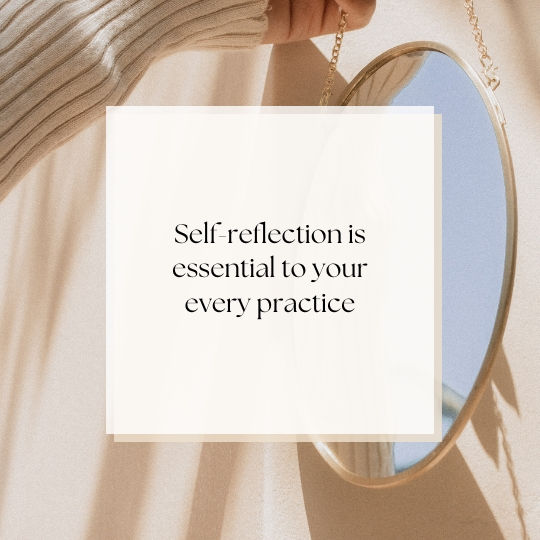The Transformative Power of Self-Reflection - Unlocking Personal Growth
- Eric Bell - Players Development Club
- May 23, 2024
- 2 min read

In today's fast-paced world, it's easy to get caught up in the hustle and bustle of daily life, leaving little time for introspection. However, the key to meaningful personal growth lies in the power of self-reflection. By reflecting on our experiences, we can gain valuable insights, learn from our mistakes, and make informed decisions that propel us forward.
Why Self-Reflection is Essential for Growth
Self-reflection is thinking about and analyzing one's thoughts, feelings, and actions. It is a critical component of personal development for several reasons:
Increased Self-Awareness: Self-reflection helps us become more aware of our strengths, weaknesses, and values. This heightened self-awareness allows us to align our actions with our true selves and make more authentic choices.
Learning from Experiences: By reflecting on past experiences, we can identify what worked well and what didn't. This process of learning from our successes and failures enables us to make better decisions in the future.
Setting and Achieving Goals: Reflection helps us clarify and assess our progress toward achieving goals. It allows us to adjust our strategies and stay focused on our objectives.
Improved Emotional Intelligence: Self-reflection enhances our ability to understand and manage our emotions. This emotional intelligence is crucial for building healthy relationships and navigating social interactions.
The Challenges of Self-Reflection
Despite its benefits, self-reflection can be challenging. The fast pace of modern life, constant distractions, and the discomfort of facing our shortcomings can all make it difficult to engage in this practice. However, by overcoming these challenges, we can unlock significant personal growth.
Strategies for Effective Self-Reflection
Set Aside Time: Dedicate a specific time each day or week for self-reflection. This break could be journaling, meditation, or sitting quietly and thinking.
Ask the Right Questions: Use open-ended questions to guide your reflection. Questions like "What did I learn from this experience?" and "How can I improve?" can help you gain deeper insights.
Be Honest with Yourself: Authentic self-reflection requires honesty. Acknowledge your successes and failures without judgment, and be willing to confront uncomfortable truths.
Seek Feedback: Sometimes, an outside perspective can provide valuable insights. To complement your self-reflection, seek feedback from trusted friends, mentors, or colleagues.
Create a Reflective Environment: Find a quiet, comfortable space to reflect without distractions. This environment will help you focus and think more clearly.
The Long-Term Benefits of Self-Reflection
Engaging in regular self-reflection can have profound long-term benefits:
Continuous Improvement: Personal growth and development can be achieved by constantly assessing and improving your thoughts and actions.
Enhanced Decision-Making: Self-reflection helps you make more informed and thoughtful decisions, leading to better outcomes in both your personal and professional life.
Greater Resilience: Understanding your emotional responses and learning from past experiences builds resilience, enabling you to handle future challenges more effectively.
Deeper Relationships: Improved self-awareness and emotional intelligence foster healthier and more meaningful relationships with others.
The power of your growth truly lies in your ability to self-reflect. By making self-reflection a regular part of your routine, you can unlock your full potential, achieve your goals, and lead a more fulfilling life. Embrace the practice of self-reflection and watch as it transforms your personal and professional growth.
"We do not learn from experience... we learn from reflecting on experience." - John Dewey
_edited.png)
Comments